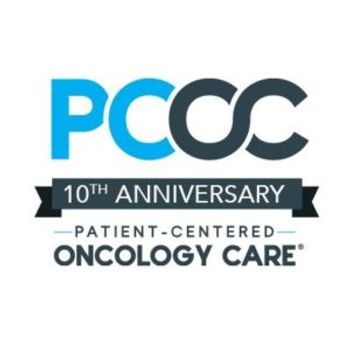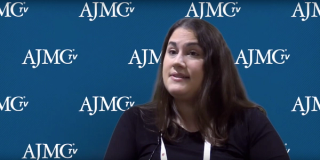
Precision Medicine in Oncology
Latest News

Latest Videos

CME Content
More News

Epigenetics has a role in choosing the right medicine in lung cancer, artificial intelligence can predict outcomes in a highly aggressive cancer, and more.

Physicians said it is in payers’ interest to use artificial intelligence to address social determinants of health, to cover tests, and to gather data. Doing so could let them stratify who needs certain screenings and diagnostic procedures and who doesn’t, which could lead to less consumption of health care.

Final results from the MASTER trial presented at this year’s 63rd Annual American Society of Hematology Annual Meeting and Exposition bear out the benefits of quadruplet therapy and using minimal residual disease (MRD) status among patients with newly diagnosed multiple myeloma (MM).


An abstract presented at the 63rd Annual American Society of Hematology Annual Meeting and Exposition shows that although daratumumab use in multiple myeloma holds great promise, challenges remain in the use of clinical pathways for treatment direction with the monoclonal antibody—which the investigators say may also present opportunities for change.

The study demonstrated the heterogeneity of actionable alterations, PD-L1 expression, and mutational burden among the samples of metastatic lung adenocarcinomas (LUAD).

Although advancements in cancer have been many, disease relapse is still a hurdle for many types of tumors and malignancies, and there is an urgent need to overcome tumor resistance.

In a recent study, researchers detailed the use of various biosensors for minimal residual disease (MRD) detection in non–small cell lung cancer (NSCLC).

A recent review outlined advances and challenges in utilizing liquid biopsy to detect measures such as circulating tumor DNA in patients with solid tumors.

The recommendations come at a time when treatments for chronic lymphocytic leukemia (CLL), such as venetoclax, are making deep remissions and undetectable minimal residual disease (MRD) after a fixed duration of treatment feasible goals.

The decision will provide Medicare coverage tests for minimal residual disease (MRD) starting December 26, 2021.

Funmi Olopade, MD, FACP, professor of medicine and human genetics and founding director of the Center for Clinical Cancer Genetics and Global Health at the University of Chicago Medical Center, explains how different populations are at different risk for breast cancer and the importance of informed screening.

The approach works by transforming the condition of normal and tumor cells into a highly proliferative “reprogrammed stem-like” condition that still has the original karyotypes.

The drug sensitivity test-guided treatment was associated with significant improvements in the patient’s condition after 8 weeks.

Across all studies included, observed-to-expected ratios showed that White and Asian patients were overrepresented while Black patients, Hispanic patients, and American Indian/Alaskan Native patients were underrepresented.

A study suggests tumor in situ fluid is a better choice when trying to extract tumor DNA in patients with glioma who underwent surgery.

Patients treated with immune checkpoint inhibitors had significantly different survival rates based on the test, regardless of PD ligand 1 classification.

A pan-cancer reference atlas provides a framework for an immune-based patient stratification that study authors expect to be predictive for patient prognosis and immunotherapy response at an elevated level after further studies.

The report suggests factors besides molecular profiling can be helpful in patient stratification.

The WISDOM study—Women Informed to Screen Depending On Measures of risk—was launched to test a personalized approach to screening compared to annual mammograms. Funmi Olopade, MD, FACP, is a professor of Medicine and Human Genetics and founding director of the Center for Clinical Cancer Genetics and Global Health at the University of Chicago Medical Center, and a co-investigator of WISDOM. She discussed how the COVID-19 pandemic actually helped increase participation in the WISDOM study and what it means for future trials.

An analysis of the latest research finds a robust approach to understanding particular prostate cancers remains necessary to finding optimal treatment.


This new study concluded that the breast cancer space needs more data to evaluate if there is a place for tissue-agnostic treatments for these patients.

New modeling could help explain why some patients develop resistance to tyrosine kinase inhibitors.















